Fritextsökning
Artiklar per år
Innehållstyper
-

19 medicines in Sweden are under investigation in a major EMA inquiry
19 medicines marketed in Sweden are affected by an ongoing extensive European investigation into suspected fraud at an Indian contract research organisation. Among them are medicines for HIV, epilepsy, cancer and Parkinson’s, which may be withdrawn unless new evidence can be provided that they are up to standard.
-
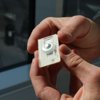
From the sea of Åland to a self-test for lithium
Four years ago, a meeting on the sea of Åland resulted in the development of a self-test for lithium levels in the blood. The hopes are that the test will be available for individuals with bipolar disorder in the future.
-

Samuel Lagercrantz: A special kind of hellishness afflicts post-COVID patients
In addition to the disease itself those suffering from post-COVID have to deal with people who try to label them as hypochondriacs, writes Samuel Lagercrantz in an editorial.
-

Life Science Sweden heads to the Oresund region! ‒ Hello there Michael Linnell
Life Science Sweden’s The Future of Swedish Danish Life Science and New Updates in Drug Formulation & Bioavailability meetings are coming up soon. We asked Michael Linnell, project manager for Life Science Sweden’s event portfolio, a few short questions.
-

Bioarctic granted Japanese patent for Parkinson’s disease candidate
Bioarctic has been granted a Japanese patent for its antibodies targeting Parkinson’s disease.
-

Small robots to deliver pharmaceuticals to the body
Robots that can operate inside the body and a platform that combines ultrasound with AI. These are a couple of the technologies that have qualified for a list that aims to promote sustainable entrepreneurship.
-

Why the world renown researcher Marc Tessier-Lavigne resigns as Stanford´s president
In mid-summer, neuroscientist Marc Tessier-Lavigne announced his resignation as President of Stanford following allegations of manipulated study data. According to the reporter Theo Baker, who first reported the story, Tessier-Lavigne “rewarded the winners and punished the losers”. Here is the background of the story which has shaken the American scientific community over the summer.
-
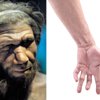
Neanderthal gene variants may cause Viking disease
A new study suggests that the so-called Viking disease, which affects the hand function in many older people, may be linked to gene variants inherited from Neanderthals.
-

Lucy Robertshaw: Artificial intelligence – is this really going to transform a patient’s life?
In a column Lucy Robertshaw reflects on how AI and new regulations will affect healthcare, innovation and the lives of future patients.
-

Anna Törner: The minute between life and death
“I have never told anyone about this day that happened more than 20 years ago. But I sometimes reflect on what happened, on what might have happened. When I try to understand why I haven’t told anyone, I find the answer: a feeling of shame. There is no forgiveness for something like this, even though it is very human to be distracted for a moment,” Anna Törner writes in a column.
-

AstraZeneca moves to brewery quarters in central Copenhagen
AstraZeneca in Denmark is moving its business into central Copenhagen and the old brewery quarters in Carlsberg Byen.
-
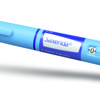
Nanexa develops depot formulation of the diabetes and obesity drug Saxenda
Uppsala-based company Nanexa has signed an agreement with a German contract research company to start a clinical study with a monthly depot of liraglutide. The drug is currently approved for the treatment of diabetes and obesity.
-

Positiva FDA-signaler om Bioarctics Alzheimerläkemedel
Dokument från den amerikanska läkemedelsmyndigheten FDA släppta inför ett panelmöte på fredag om Eisais och Bioartics Alzheimerbehandling Leqembi (lecanemab) höjer förväntningar på ett fullt godkännande för preparatet. Det rapporterar internationell media på onsdagskvällen.
-

Study: Semaglutide tablet produces weight loss
The pharmaceutical semaglutide is effective for weight loss even when given in tablet form, according to a phase 3 study.
-

Alligator, Tataa, Ilya: Så valde bolagen sina namn – del 1
Att namnge ett företag kräver strategi, långsiktighet, juridiska kollar – och gärna ett mått av originalitet. Här är fem bolag inom life science med namn som sticker ut, och historierna bakom dem. Inom kort presenterar vi ytterligare fem.
-

Study: Chat GPT is more empathetic than doctors
The AI tool Chat GPT is not only more accurate when it comes to answering patient questions – the chatbot is also perceived as almost 10 times more empathetic than real doctors, a new study reveals.
-

GSK anmälde konkurrent – men får själva betala
Bayers marknadsföring av nässprejen Nasonex anmäldes av konkurrenten GSK, som ansåg den vara "försåtlig". Men Informationsgranskningsnämnden håller inte med.
-
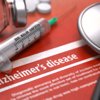
Nya Alzheimerdata från konkurrent fick Bioarctics aktie att backa
Det svenska forskningsbolaget Bioarctic, utvecklaren bakom Alzheimersläkemedlet Leqembi (lecanemab), handlades nedåt på börsen på onsdagen efter att amerikanska Eli Lilly presenterat positiva data för konkurrentpreparatet donanemab.
-

Confidence in childhood vaccines is in decline worldwide
Since the pandemic, confidence in vaccinating children has plummeted. In a new report, UNICEF urges world leaders to act before the situation worsens. In 52 out of 55 countries surveyed, public perception of the importance of vaccinating children has declined.
-

New drug alert in the US: Rise in overdoses linked to the use of drugs for animals
A combination of the synthetic drugs fentanyl and xylazine, an animal tranquilizer, has been labelled a “growing threat” by the White House due to its role in the ongoing opioid crisis in the US.
-

Nytt droglarm i USA: Ökning av överdoser kopplas till användning av läkemedel för djur
En kombination av den syntetiska drogen fentanyl och xylazin, ett lugnande medel avsett för djur, har av Vita Huset stämplats som ett "växande hot" på grund av sin roll i USA:s pågående opiodkris.
-
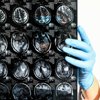
Blodtest från Roche ska ge tidig Alzheimersdiagnos
Det schweiziska läkemedels- och diagnostikbolaget Roche har tagit fram ett blodtest som ska underlätta diagnostiken inom Alzheimers sjukdom.
-

The impact of the recession on the Swedish medtech sector
We need health care regardless of whether the economy is good or bad, but the current recession also affects the Medtech sector.
-

"Sjukdomsmodifiering blir standard i Alzheimers"